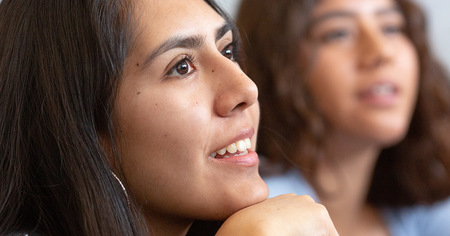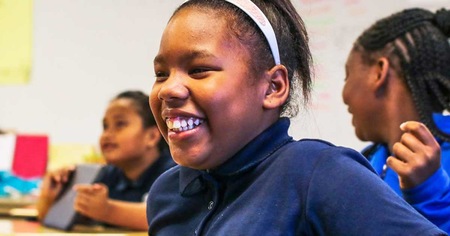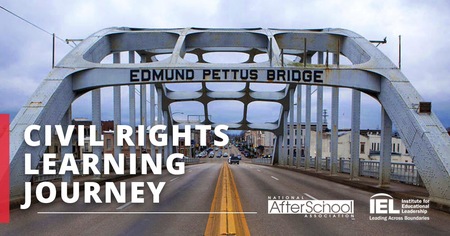Young people around the South stepped forward with brave actions and bold words to bring encouragement, hope, and change to their communities and to communities throughout the region.
From November 25 through 28, 2018, Institute for Educational Leadership's Education Policy Fellowship Program, in partnership with The Freedom '64 Project and National AfterSchool Association, hosted a Civil Rights Learning Journey and retraced the Civil Rights Movement in the American South. On this personal and professional development experience, participants reflected and engaged in a meaningful dialogue about how to make a positive social change in their organizations and their communities.
We have much to learn from our brothers and sisters who paved the paths for us today.
NAA interviewed two participants about their experience. Read on for their insight.
How did the CRLJ experience influence your thinking and your work going forward?
I flew home from the Civil Rights Learning Journey with one thought on my mind:
How can we better integrate our elders in our work with young people?
The civil rights activists who shared their time and experiences with us reminded me that our field's overreliance on young people to serve as frontline staff robs us of the hard-won wisdom that only a life lived long and well can provide.
The elders we sat and broke bread with as they shared their stories of striving for rights had so much energy, insight and clarity, and just oozed the kind of easy authority that those who have seen things emanate. They held our attention for hours on end with stories and lessons learned. Most of all, they were just with us—alive and well.
At All-Stars, we often fret over behavior/classroom management or inconsistent staff and find ourselves caught in a revolving door of part-time employees who, much to our displeasure, aren't able to invest the effort and energy our kids deserve. Likewise, we often find ourselves with open positions, even though we scour college campuses and canvas job search sites. What we don't think to do often enough is seek out accomplished, energetic elders who may be looking for part-time opportunities that allow them to give back.
So, for me, a 2019 goal is to expand our vision for diversity, equity and inclusion to include elders. I want us to intentionally recruit and create space to bring them into the work, so that our kids and organization as a whole can benefit from their special gifts
—Dax-Devlon Ross, Regional Executive Director, Northeast Chapters, After-School All-Stars
Experiential learning is a hallmark of quality out-of-school time programs. The National Afterschool Association put this point on display when it invited educators on a most timely and relevant civil rights leadership trip through historic and significant sites in Mississippi and Alabama.
The mix of divisive, hostile, and offensive policies and rhetoric from senior government officials, large scale protest movements and rallies in response, and the 50th-anniversary commemorations of the 1968 assassinations of Martin Luther King, Bobby Kennedy, and Malcolm X, have motivated many in the media, general public, and education to take pause, reflect, and go back to learn from the success, strategies, and struggles of inspired leaders and movements past.
Our itinerary included visits to the homes of Martin Luther King and Medgar Evers, the Rosa Parks Museum, Southern Poverty Law Center, Bryan Stevenson's Equal Justice Institute, and a march across the Edmund Pettis Bridge in Selma. We also traveled with frontline civil rights activists Hollis Watkins and Roscoe Jones Sr., who shared their life stories and insights.
When you visit the Southern Poverty Law Center's memorial to those who died fighting for civil rights and see the photo and name "Heather Heyer, 2017"—the young woman killed by a car in Charlottesville—you realize the civil rights movement is not just for history books, but a continuous struggle to this day and beyond.
When you visit Bryan Stevenson's new museums highlighting the horror of lynching and the direct links between slavery, Jim Crow laws, and today's mass incarceration of minorities, you understand the power of policy to codify privilege and its inability to eradicate racist ideologies.
When you see that most activists were in their teens and 20s when they risked arrest, beatings, and death so our society could improve for all, you recognize the unlimited power, optimism, and potential for all young people to lead, demand, and drive change.
Educators with the honor and position to empower young people should all be so lucky to have and share this learning experience.
—Aaron Dworkin, President, National Network, After-School All-Stars
Written by Heidi Ham, Vice President, Programs and Strategy, National AfterSchool Association. This article originally appeared in AfterSchool Today.




